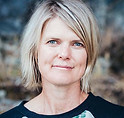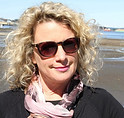
Indigenous Stewardship of Salmon Watersheds:
Emerging Cumulative Effects Assessment Approaches for Salmon Watersheds
November 18, 2020
What tools are available to assess cumulative effects, particularly in relation to salmon-bearing watersheds in British Columbia? In November 2020, five experts gave us a sampler of assessment tools to help propel Watershed Futures Initiative discussions.
This webinar was the first major event for the Watershed Futures Initiative and marked its official launch. This webinar included an introduction to the Watershed Futures Initiative, and a series of short presentations offering an overview of assessment frameworks and management strategies from BC and beyond.
1. Watershed Assessment and the BC Cumulative Effects Framework
FELICE GRIFFITHS & CHELSEA ENSLOW
Ministry of Forests, Lands and Natural Resource Operations and Rural Development (FLNRORD)
Felice is the Team Lead for Policy and Guidance with the Cumulative Effects and Integrated Monitoring Section of FLNRORD. She holds a Master's in Resource and Environmental Management from SFU and a BSc. in Biology from UVic. She has worked for the provincial government for 15 years—in wildlife management, environmental assessment, and since 2016 on development and implementation of BC's Cumulative Effects Framework.
Chelsea is a Land and Resource Coordinator with the Thompson-Okanagan Region, FLNRORD. Her background is diverse, including ornithological and parasitological research, inter-government collaboration, and project management, while her current role is focused on planning and cumulative effects. She holds a BSc in Environmental Science from UBC, and a Masters of Natural Resource Management from the University of Manitoba.
2. Prioritizing Threat Management Action for Salmon Recovery
TARA MARTIN
Professor, Conservation Decisions Lab, University of British Columbia
Tara is a professor at the University of British Columbia and leads the Conservation Decisions Lab. Her team is pioneering the field of conservation decision science—combining ecological predictions with decision science to bridge the gap between research and on-ground conservation action and policy. They are currently working to understand cumulative impacts and shifting baselines with respect to salmon on the BC Central Coast and Fraser River and to prioritize their threat management for recovery. Tara is most at home in the Salish Sea exploring nature with her children.
3. Tsleil-Waututh Nation’s Cumulative Effects Management Initiative in Burrard Inlet
SPENCER TAFT
Cumulative Effects Project Manager, Tsleil-Waututh Nation
Spencer is from Edmonton, Alberta, and has a BSc in Ecology, and an MSc in Forest Biology. He started working at Tsleil-Waututh Nation in 2015 for the Nation’s sustainable resource management company, Inlailawatash. Currently, he manages TWN’s cumulative effects program, which is looking at numerous lines of evidence to understand historic impacts and ecosystem changes in Burrard Inlet since European contact, forecast future changes from ongoing development, and support TWN decision-making and management. To do this, the program is reconstructing a pre-contact ecosystem baseline, collecting data on key stressors and drivers of change, and developing an ecosystem model of current conditions to forecast future changes and impacts.
4. What is Killing Our Fish? Cumulative Effects Modelling to Help Alberta’s Fishes
MICHAEL SULLIVAN
Fisheries Scientist, Alberta Environment and Parks and Adjunct Professor at the University of Alberta
Michael is Alberta-born, raised, educated (all 3 degrees) and has worked as a fisheries biologist in western Canada for nearly five decades. Unlike many scientists, and similar to mountain caribou, his dispersion coefficient is relatively low. This familiarity with the western mountain and boreal landscapes has led to a profound appreciation for the peoples, the deep history, and the intricate connections between rivers, forests, fishes, and peoples. His career has been one of learning and teaching of difficult trade-offs between what we want today, what Nature can accommodate, and what can be gained or lost by failing to act. The integrated, holistic understanding of Nature as understood by western Canada’s indigenous peoples guides Michael’s efforts to integrate facets of western science (especially cumulative effects simulation modelling) into the larger sphere of Traditional Knowledge.
Although his habitat preferences are high, lonely, and snowy places, his typical location is near the University of Alberta campus in Edmonton, where he works as Alberta’s provincial fisheries scientist and adjunct professor.
5. Risk Assessment Methodology for Salmon (RAMS)
ISOBEL PEARSALL
Director, Marine Science Programs, Pacific Salmon Foundation
Isobel has a First Class degree in Pure and Applied Biology from Oxford University, a M.Sc. in Ecology from Dalhousie University, and a Ph.D. in Ecology from UBC. After her Ph.D. studies, she was a post-doctoral fellow in Ecosystem Management at the Pacific Biological Station, Department of Fisheries and Oceans, Nanaimo.
Isobel was the Project Coordinator (Canada) for the Pacific Salmon Foundation’s Salish Sea Marine Survival Project (SSMSP), a transboundary $20M program set to address declines in Chinook, Coho and Steelhead in the Salish Sea between 2014-2019. She is currently the Director of Marine Science Programs at PSF and lead for the Strait of Georgia Data Centre, an online hub established in collaboration with the Institute of the Ocean and Fisheries, UBC. The Strait of Georgia Data Centre holds data for ecological, environmental and human use data for the Strait of Georgia.
In 2010, working with Wilf Luedke DFO and Dr. Kim Hyatt DFO, Isobel developed a Risk Assessment Methodology for Salmon (RAMS), which has been applied by regional salmon experts at population, CU, watershed and MU levels to assess the biological risks posed by identified stressors/ limiting factors for both data rich and data deficient CUs in Canada’s Pacific region and may be used to prioritize research, assessment and fisheries management responses to sustain or restore wild salmon throughout the region.









